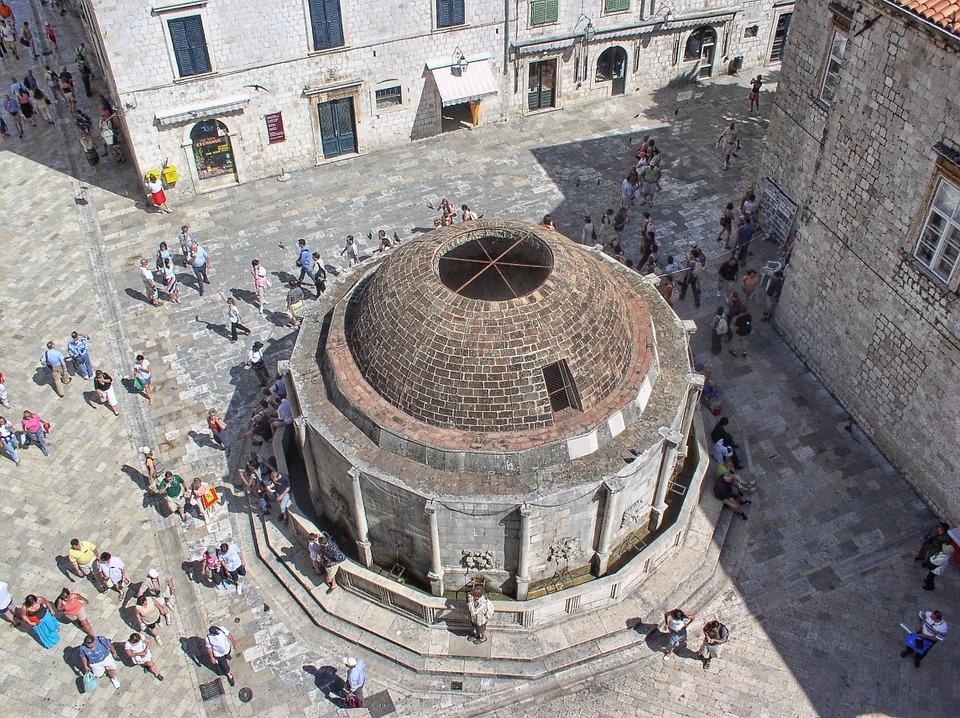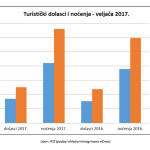
The new Croatian Government, at the head of which Andrej Plenkovic remains, has a historic chance to finally put Croatian tourism’s ”house” in order, but with so much on its plate, will it do so?
As Poslovni Dnevnik/Marija Crnjak writes on the 24th of August, 2020, it has become clear that this year’s tourist season in Croatia is already over. When the last Germans, Slovenes, and Austrians have packed up and gone home, most tourist facilities have little to no choice but to close their doors prematurely until next spring and throw themselves into preparation for next season.
Despite the fact that it enjoyed a far lower income than it did last year, the season went better than most had hoped and expected. Tourists showed great confidence in terms of their safety in Croatia and the whole system, loyalty to the hosts with whom they spend their summers, and their passion for a summer holiday wasn’t particularly shaken by the atmosphere of coronavirus-induced fear that has dominated 2020 so far.
We should thank them and congratulate them on this, just as we should with the very many enterprises operating in Croatian tourism who were in a constant state of crisis management this entire summer. It took courage to open a facility at all with the risk of booking cancellations. For them to organise their business in a completely different way than usual and continue to smile at guests from whom they are unlikely to make any profit is admirable. Many are now somewhat relieved.
Not everyone was equal, and not everyone will survive this year, however. The most serious situation is currently taking place within tourism agencies, which didn’t even rise above 10 percent of last year’s turnover, as well as the organisers of small cruises.
Despite serious preparations and the application of strict infection protection protocols, which cost them a lot, Croatia’s hotels have, on average, drawn the short straw in terms of accommodation. Camps, for which Croatia is known throughout Europe, fared much better, even with the smallest of price corrections. Private accommodation, although statistics show that there were plenty of overnight stays realised, will still have only a slim income as there were plenty of discounts and hosting friends filling gaps in the market.
Data on fiscalisation shows that caterers and hospitality facilities on the Croatian Adriatic operated fairly decently, and additional staff were even sought throughout the summer, despite the huge economic issues which swept the country back in spring. Maritime transport also proved to be quite resilient.
What’s next? By all accounts, a very modest congressional fall, as most events have been cancelled or postponed until next year. In that sense, Dubrovnik, Opatija, and Zagreb, which is the weakest city in terms of tourism this year due to the earthquake, will suffer the most, at perhaps a quarter of last year’s traffic, if that.
The attention of every serious player in Croatian tourism is therefore on next year, in which things should be better. In that sense, every smile and every gesture which made a tourist think of returning in 2021 counts. This certainly includes the decision of hotel companies to finance their guests’ test for coronavirus before departing.
In this way, hotels made life a lot easier for their guests and showed them that they really value their money and the fact that they chose Croatia during such circumstances. Such moves are not forgotten and hotels can count on some of these guests to come back at the first possible opportunity or recommend them.
However, it will take several years for Croatian tourism to fully recover, and those years should be used very wisely. The picture of Croatian tourism has never been clearer than it is now, and Croatia has never had a better opportunity to improve that picture. We have more than enough people in Croatia to move things forward, but we need the political will in order to go full steam ahead.
The new government headed by PM Andrej Plenkovic to rethink the way Croatia ”does” tourism and come up with a more sustainable way of doing things. If this extremely harsh year has highlighted anything, it is that we need a rethink – and now.
There is an urgent need to stop the devastation of certain coastal areas and the seemingly constant construction of new apartments, which continued even this year, and to once and for all stop bowing down to the interests of certain unsavoury individuals, from local sheriffs to other powerful people who hold entire destinations in their grasp.
Croatian tourism needs to modernise its promotion system at all possible levels, and use technology that can do market research and promotion for less of a cost. Measures for all this exist and there is money available to engage in the process, but whether the will is there and whether or not lessons have actually been learned is yet to be seen.
For more on Croatian tourism in the coronavirus era, follow our travel page.
For the latest travel info, bookmark our main travel info article, which is updated daily.
Read the Croatian Travel Update in your language – now available in 24 languages
Join the Total Croatia Travel INFO Viber community.









